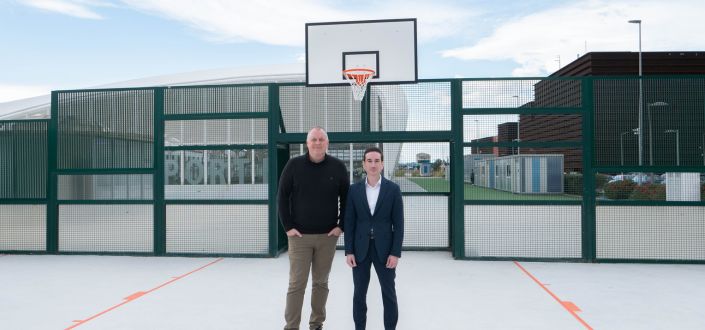Josep Alemany, Vice-Rector of University Extension of the European Atlantic University (UNEATLANTICO) and Álvaro Velarde, coordinator of the PhD Program in Physical Activity and Sport: Risks and Benefits and lecturer and researcher at UNEATLANTICO, carry out a study analysing the design, content and methodologies applied in international basketball coach training programmes.
Basketball, as a discipline characterized by its dynamism, high tactical demand and strategic complexity, requires coaches capable of making decisions based on scientific evidence. In this context, coach training plays an essential role in improving player performance, developing talent and optimizing coaching processes.
So far, federations and universities have implemented various forms of training: face-to-face classes, online modules and combined formats (face-to-face and online). However, pedagogical approaches and standards vary between institutions and countries, so there is no common guide for designing trainer training plans. This lack of reference makes it difficult to transition from models based on «explain and repeat» towards approaches that prioritise the understanding of play and the active construction of knowledge.
In this context, the study by Dr Alemany and Dr Velarde aimed to identify the most relevant features of existing training programmes and to assess the effectiveness of the methodologies used. To this end, a systematic review of the existing literature was carried out with a rigorous and methodologically sound approach.
In general terms, training needs depend on the level of experience: those starting out require a solid foundation, while those with more experience need advanced updating and cross-cutting skills. In this framework, the contents should be organized progressively according to the stage and level of those who teach and learn: at initial levels priority is given to fundamental skills and basic principles in attack and defence; later collective strategies become important, the coordination of roles and the balance between phases, while maintaining individual principles as a basis.
Decision-making is a core competence and is strengthened with active and contextualized methodologies, reduced and close to reality situations that integrate perception-action, continuous feedback and problem solving. Mixed formats (blended learning), combining online study and on-the-job practice, are particularly effective in promoting meaningful and sustainable learning.
Assessment should go beyond the written test and incorporate genuine procedures to demonstrate competence in real situations. Training should also be continuous and integrate formal and non-formal learning, including personal and environment management skills because of their direct impact on team performance.
These guidelines guide the design of standardized programmes by levels and ages; the selection of content and tasks; and the definition of competency assessment frameworks, taking advantage of mixed environments and digital technologies to provide flexible experiences; accessible and learner-centred.
This systematic review is an important contribution to the field of sports training, providing an overview of current trends and needs in basketball coach education. Findings provide a solid foundation for the development of more effective, sustainable and modern sport-aligned programs.
If you want to know more about this study, please clic aquí.
Para leer más investigaciones, consulta el repositorio de UNEATLANTICO.


